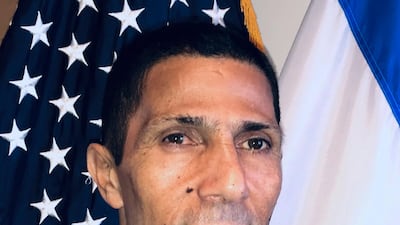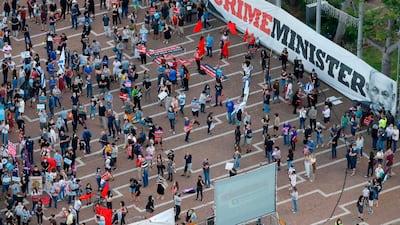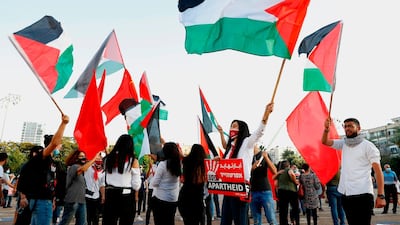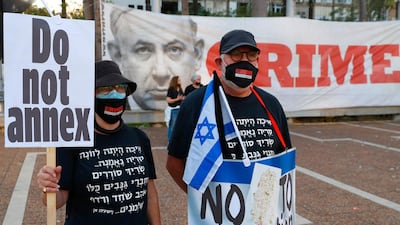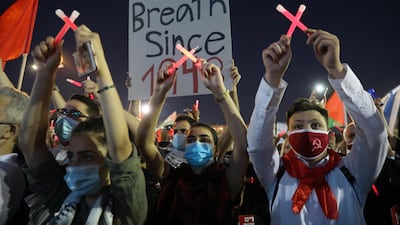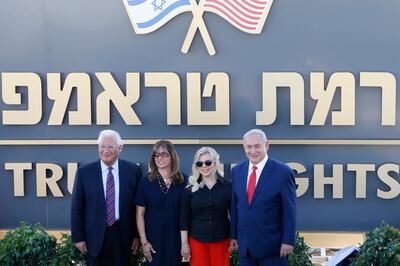An Israeli diplomat filed a complaint last week with police after he was pulled to the ground in Jerusalem by four security guards, who knelt on his neck for five minutes as he cried out: “I can’t breathe."
There are obvious echoes of the treatment of George Floyd, an African-American killed by police in Minneapolis last month. His death triggered mass protests against police brutality and reinvigorated the Black Lives Matter movement. The incident in Jerusalem, by contrast, attracted only minor attention – even in Israel.
An assault by Israeli security officials on a diplomat sounds like an aberration – a peculiar case of mistaken identity – quite unlike an established pattern of police violence against poor black communities in the US. But that impression would be wrong.
The man attacked in Jerusalem was no ordinary Israeli diplomat. He was Bedouin, from Israel’s large Palestinian minority. One fifth of the population, this minority does not enjoy all the benefits of Israeli citizenship.
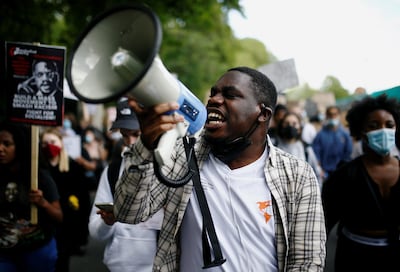
Ishmael Khaldi’s exceptional success in becoming a diplomat, as well as his all-too-familiar experience as a Palestinian of abuse at the hands of the security services, exemplify the paradoxes of what amounts to Israel’s hybrid version of apartheid.
Mr Khaldi and another 1.8 million Palestinian citizens are descended from the few who survived a wave of expulsions in 1948 as a Jewish state was declared on the ruins of their homeland.
Israel continues to view these Palestinians – its non-Jewish citizens – as a subversive element that needs to be controlled and subdued through measures reminiscent of the old South Africa. But at the same time, Israel is desperate to portray itself as a western-style democracy.
So strangely, the Palestinian minority has found itself treated both as second-class citizens and as an unwilling shop-window dummy on which Israel can hang its pretensions of fairness and equality. That has resulted in two contradictory faces.
On one side, it segregates Jewish and Palestinian citizens, confining the latter to a handful of tightly ghettoised communities on a tiny fraction of the country’s territory. To prevent miscegenation, it strictly separates schools for Jewish and Palestinian children. The policy has been so successful that inter-marriage is all but non-existent.
The economy is largely segregated too.
Most Palestinian citizens are barred from Israel’s security industries and anything related to the occupation. State utilities, from the ports to the water, telecoms and electricity industries, are largely free of Palestinian citizens. Job opportunities are concentrated instead in low-paying service industries and casual labour. Two thirds of Palestinian children in Israel live below the poverty line, compared to one fifth of Jewish children.
This ugly face is carefully hidden from outsiders.
On the other side, Israel loudly celebrates the right of Palestinian citizens to vote – an easy concession given that Israel engineered an overwhelming Jewish majority in 1948 by forcing most Palestinians into exile. It trumpets exceptional “Arab success stories”, glossing over the deeper truths they contain.
During the Covid-19 pandemic, Israel has been excitedly promoting the fact that one fifth of its doctors are Palestinian citizens – matching their proportion of the population. But in truth, the health sector is the one major sphere of life in Israel where segregation is not the norm. The brightest Palestinian students gravitate towards medicine because at least there the obstacles to success can be surmounted.
Compare that to higher education, where Palestinian citizens fill much less than one per cent of senior academic posts. The first Muslim judge, Khaled Kaboub, was appointed to the Supreme Court only two years ago – 70 years after Israel’s founding. Gamal Hakroosh became Israel’s first Muslim deputy police commissioner as recently as 2016; his role was restricted, of course, to handling policing in Palestinian communities.
Mr Khaldi, the diplomat assaulted in Jerusalem, fits this mould. Raised in the village of Khawaled in the Galilee, his family was denied water, electricity and building permits. His home was a tent, where he studied by gaslight. Many tens of thousands of Palestinian citizens live in similar conditions.
Undoubtedly, the talented Mr Khaldi overcame many hurdles to win a coveted place at university. He then served in the paramilitary border police, notorious for abusing Palestinians in the occupied territories.
He was marked out early on as a reliable advocate for Israel by an unusual combination of traits: his intelligence and determination; a steely refusal to be ground down by racism and discrimination; a pliable ethical code that condoned the oppression of fellow Palestinians; and blind deference to a Jewish state whose very definition excluded him.
Israel's Foreign Ministry put him on a fast track, soon sending him to San Francisco and London. There his job was to fight the international campaign to boycott Israel, citing his own story as proof that in Israel anyone can succeed.
But in reality, Mr Khaldi is an exception, and one cynically exploited to disprove the rule. Maybe that point occurred to Mr Khaldi as he was being choked inside Jerusalem’s central bus station after he questioned a guard’s behaviour.
After all, everyone in Israel understands that Palestinian citizens – even the odd professor or legislator – are racially profiled and treated as an enemy. Stories of their physical or verbal abuse are unremarkable. Mr Khaldi’s assault stands out only because he has proved himself such a compliant servant of a system designed to marginalise the community he belongs to.
Last week, however, Israeli Prime Minister Benjamin Netanyahu himself chose to tear off the prettified, diplomatic mask represented by Mr Khaldi. He appointed a new ambassador to the UK.
Tzipi Hotovely, a Jewish supremacist and Islamophobe, supports Israel's annexation of the entire West Bank and the takeover of Al Aqsa mosque in Jerusalem. She is part of a new wave of entirely undiplomatic envoys being sent to foreign capitals. Ms Hotovely cares much less about Israel's image than about making all the "Land of Israel", including the occupied Palestinian territories, exclusively Jewish.
Ms Hotovely's appointment signals progress of a kind. Diplomats such as herself may finally help people abroad understand why Mr Khaldi, her obliging fellow diplomat, is being assaulted back home.
Jonathan Cook is a freelance journalist in Nazareth
